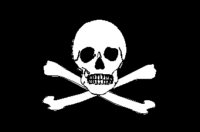





States are entities that possses a legitimate monopoly on the use of violence within a specified geographical territory. Para-states are entities that contest this monopoly through various forms of direct action. Para-states of of interest to the intelligence and security agencies of states both as targets and as agents of state activity. Simple criminal enterprises, such as substance distribution networks, which defy the laws of states, are frequently the target of the operations of intelligence agencies, and less frequently the agents of such operations. National liberation movements are frequently supported by, and opposed by, state security and intelligence agencies.
This directory of para-states is not a list of terrorist organizations , and is not constructed to supplement or complement the list of terrorist organizations of the US Department of State. The Parastate guide intentionally casts a wide net, and includes both the nasty and nice. Unavoidably, however, in order to avoid the creation of an "FAS List of Terrorist Organizations" we have included both the nasty and nice in one list. The alternative would have been to create separate nasty and nice lists, which would have led to no end of difficulty in deciding which groups to put on which list. While it is perhaps regrettable that some may mis-characterize the FAS Parastate list as a "terrorist list" it would be even more regrettable if FAS got into the business of actually constructing such a list, an undertaking that would create far more problems than it would solve.
Some para-states engage in terrorism, which is defined by the United States government in Title 22 of the United States Code, Section 2656f(d) as premeditated, politically motivated violence perpetrated against noncombatant targets by subnational groups or clandestine agents, usually intended to influence an audience. For purposes of this definition, the term "noncombatant" is interpreted to include, in addition to civilians, military personnel who at the time of the incident are unarmed and/or not on duty. Acts of terrorism also include attacks on military installations or on armed military personnel when a state of military hostilities does not exist at the site, such as bombings against US bases in Europe, Saudi Arabia, or elsewhere.
The scope of these profiles of para-state entities generally follows that of the mandate of the US National Security Council Special Assistant to the President for Transnational Threats, which addresses threats to US security such as terrorism, cyber warfare and computer security, covert employment of weapons of mass destruction, narcotics trafficking, and international organized crime.
The vast array of revolutionary and extremist organizations that in principle dispute the theoretical legitimacy of existing state regimes do not merit inclusion here, in the absence of some overt activities such as direct action or armed struggle that directly contest the state's monopoly on violence. Similarly, national liberation movements and other political tendencies entirely restricted to political change through propaganda or elections, without direct action or armed struggle components, are also excluded.
The scope of this list is both current and retrospective, including both currently active and long defunct entities. In the real world, the modes of political action of a given movement or entity surely evolve over time, reflecting the objective circumstances of the moment. Enterprises which at one point in history have engaged in unambiguously terroristic acts may subsequently "seize and consolidate state and party power" and become states themselves. And frequently it is the case that liberation struggles consist of parallel political and armed struggle wings, with connections that are not always overtly acknowledged. The presence of an entity on this Para-State list does not imply that it is currently engaged in direct action, though an entity may be listed to reflect past or current association with direct action.
These profiles of para-states are neither complete nor exhaustive, nor can they be. Unlike states, the existence of which is formally recognized by other states which are members of the international community, there is no formal mechanism for certifying an entity as a "para-state," hard and fast rule as to the precise definition of a para-state. While there is in principle no theoretical lower limit to the size of a para-state, in practice petty criminal conspiracies are too numerous and trivial to merit inclusion, while even relatively small though energetic terrorist groups do merit inclusion.
As to the use of the pirate flag as the default signature graphic for the profile pages, we generally attempt to use the flag or kindred emblem of the entity profiled. When we can find none, or none is available, we use the buccaneer's traditional emblem, under the theory that the buccaneer is the archetype of the parastate. The freebooter is an ambiguous figure in American popular culture, portrayed sympathetically as often as not, and it would seem that no great editorial violence is implied by associating some freedom fighters with the tradition of Errol Flynn or The Pirates of Penzance.
